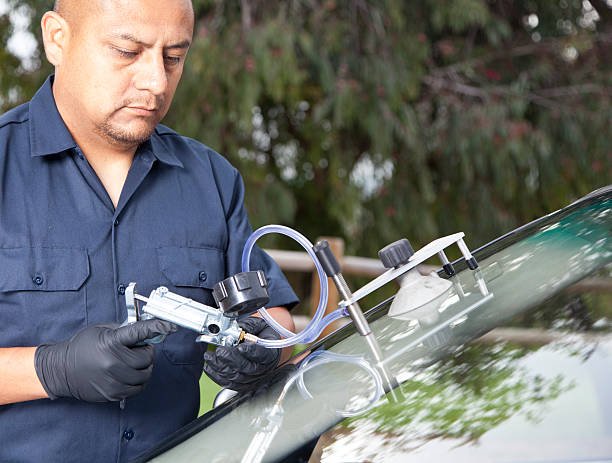Smooth Rides, Safe Drives: Protecting Your Windshield from Road Vibrations
Have you ever glimpsed a minor fissure in your vehicle's windshield and pondered its origins? Perhaps, you've witnessed a negligible crack expand dramatically, almost as if by magic, post navigating a stretch of uneven terrain. This phenomenon is far from a mere stroke of bad luck, it is a manifestation of a deeper, more intricate issue. The relationship between the subtle yet persistent vibrations of the road and the incremental degradation or abrupt worsening of windshield cracks is profound and warrants a closer examination.
In this exploration, we delve into the mechanics of this interaction, unraveling the complexities behind these seemingly innocuous windshield imperfections. As we embark on this journey, we aim to demystify the science in a manner that is accessible and comprehensible, shedding light on a topic that, while often overlooked, is crucial to the integrity and safety of our vehicular companions.
What Happens to Your Windshield on the Road
First, it's essential to know that your car's windshield is more than just a piece of glass. It's a critical component of your vehicle's structure and safety system. Windshields are made of laminated glass, which means they have a layer of plastic between two glass layers. This design helps the windshield to stay intact even when damaged.
When you drive, especially on uneven roads, your car experiences vibrations. These vibrations are transferred to various parts of the car, including the windshield. While windshields are designed to withstand normal road conditions, over time, the constant shaking and jostling can take a toll.
Small Cracks Can Become Big Problems
A tiny chip or crack in your windshield might not seem like a big deal, but it's like a weak spot in armor. When your car vibrates, these small cracks can start to spread. The vibrations cause the glass molecules around the crack to move, which can make the crack grow. Think of it like bending a thin metal wire back and forth until it breaks. The same principle applies to the glass in your windshield.
Temperature Changes Add to the Stress
It's not just the vibrations that cause problems. Temperature changes can also make cracks worse. On a hot day, the glass expands. On a cold day, it contracts. These changes can make the glass more vulnerable to cracking, especially if there's already a small chip or crack. When you add the stress of road vibrations, it's a recipe for a rapidly spreading crack.
Why You Shouldn't Ignore Windshield Damage?
Ignoring a cracked windshield can lead to bigger issues. A small crack can suddenly turn into a large one, obstructing your view and making driving dangerous. In some places, it's even against the law to drive with a significantly damaged windshield because it's considered a safety hazard.
Moreover, the windshield plays a crucial role in the structural integrity of your vehicle. In a rollover accident, a strong windshield can help prevent the roof from caving in. It also aids in the proper deployment of passenger-side airbags. So, a compromised windshield could mean compromised safety. Beyond these critical functional aspects, the windshield also offers opportunities for personalized auto enhancements, reflecting the driver's style and preferences. For those looking to delve deeper into how this element can elevate a vehicle's aesthetic and functionality, auto glass customization could be the next step.

Prevention and Maintenance Tips
To minimize the risk of windshield cracks:
Avoid Rough Roads When Possible: If you can take a route with smoother roads, do so. It might take a bit longer, but it can help in preserving your windshield's integrity.
Keep a Safe Distance: Following too closely behind other vehicles, especially large trucks, can lead to your windshield being hit by flying debris, which can cause chips or cracks.
Regularly Check Your Windshield: Regularly inspect your windshield for any chips or cracks. Catching them early can mean a simple repair instead of a full replacement. Furthermore, understanding the importance of proper windshield installation can be crucial in these situations.
Consider Your Parking Spot: Try to park in shaded areas during hot weather and in covered areas during cold weather to reduce the temperature stress on your windshield.
Dealing with Cracks
If you do find a crack in your windshield:
Don't Wait to Get It Fixed: The sooner you address a chip or crack, the better. Small chips can often be easily repaired..
Consult Professionals: Always go to a professional for windshield repair or replacement. They have the right tools and expertise to do the job safely and correctly. Furthermore, understanding the auto glass installation process can be crucial in these situations.
While we might not always give it much thought, the impact of road vibrations on our car's windshield is significant. It's essential to be aware of the potential risks and take steps to mitigate them. Remember, a well-maintained windshield is not just about keeping your car looking good, it's about keeping you and your passengers safe on the road.
